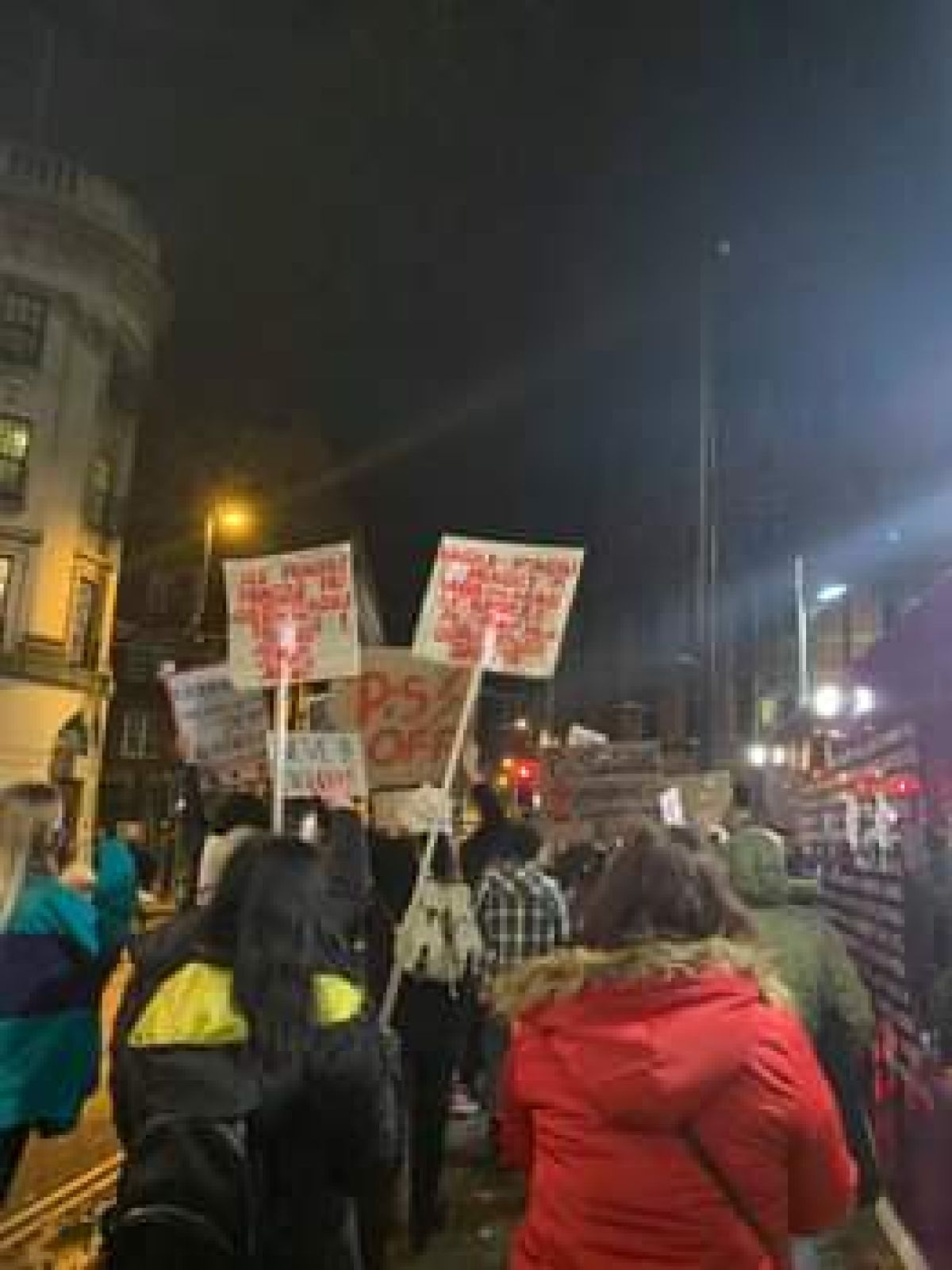Polish students react to near-total abortion ban in their home country
By matildaoculy

On October 22nd, the Polish Constitutional Tribunal ruled abortion unconstitutional on the grounds of “severe and irreversible foetal defects or incurable illness that threatens the foetus’ life.” However, the implementation of the law has since been delayed, and two weeks of nationwide protests followed.
The tightening of the law will translate into a near-total abortion ban in the country. In 2019, up to 98% of the 1,100 legal abortions were carried out on the grounds of foetal abnormalities.
The decision results from a request submitted by 119 MPs in December 2019. It stated that abortion on the grounds of irreversible foetal defects violated four constitutional principles, namely the right to life, human dignity, non-discrimination and the democratic rule of law.
The Constitutional Tribunal is made up of 15 judges mainly from PiS (Prawo i Sprawiedliwość), the Law and Justice Party. It is the right-wing populist party to which belongs Andrzej Duda, the incumbent President of Poland.
Poland is the only EU member other than Malta to have a very restrictive abortion law. Currently, women can abort under three circumstances: in cases of rape or incest, severe congenital defects or if the mother’s life is at risk.
While 1,100 legal abortions were recorded in 2019, it is estimated that a more realistic figure for abortions in the country lies between 100,000 and 150,000 per year.
The UN estimated that 100,000 women travel abroad to undergo the procedure, mainly to Germany, Slovakia and the Czech Republic, where laws are less restrictive.
Whilst the implementation of the ruling remains uncertain, abortion clinics in Poland have already been turning women away.
A second-year Polish student, Hannah, has been active on social media and engaged with other international students to spread awareness on the events in Poland. She feels hopeless, being unable to go back home to protest. She is also concerned with the Polish government’s views on the LGBTQ+ movement, referred to as the “rainbow plague” by right-wing politicians.
Another student, Monika, shared that “As a young polish woman, [she is] frustrated, disappointed and just very sad due to the current situation.”
Monika participated in three protests in Manchester. She said: “It was a very empowering experience, and it was nice to see so many Polish women and men peacefully protesting. Everyone wore face masks and respected safety rules.”
Reactions to the near-total abortion ban have spread across Europe, with an estimate of 400,000 people having protested in late October in over 400 cities.
On Wednesday, October 28th, more than 400 protests took place in Poland. Vast crowds were seen marching in the country’s major cities, such as Warsaw, Wroclaw, Kraków, and Poznań. The City of Warsaw’s officials reported 100,000 protestors in their streets, followed by half a million on Friday 30th.
These are the largest demonstrations the country has known since the solidarity movements in the 1980s.
Protestors target the Justice and Law Party and the Catholic Church. Activists disrupted Sunday masses in several churches and the protestors chanted “f*** the clergy” at the archbishop’s palace in Krakow. Some protestors were also dressed as handmaids, symbolising the dystopian universe imagined by Margaret Atwood.
Mateusz, a Polish student who is currently living back home, has participated in three protests in Warsaw.
He said: “You could have really seen the outrage of the people who stopped the traffic, and many people who participated in protests have never been interested in demonstrating their political feelings before. Most of the protestors are young people who, two weeks before today, were unpolitical.”
Similarly, Monika talked of how “many of [her] friends were apolitical in the past but are now protesting and demonstrating their feelings on social media.”
The other positive thing is that now more and more people are aware of it and talk about it.”
According to a survey by Kantar, 70% of Poles support the mass street demonstrations, with similar levels of support among both sexes.
Protests have continued throughout November but it seems protestors are facing violent opposition from the far – right. Several attacks have been launched in recent weeks by nationalist activists, armed with batons and knives.
The Chairman of the Law and Justice Party, Jaroslaw Kaczynski, has argued that the protestors are part of “an attack meant to destroy Poland.”
Whilst uncertainty concerning the implementation of the ruling remains, pro-choice protestors continue to march in the streets.







